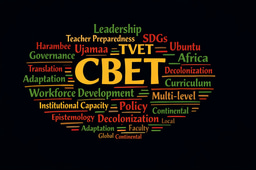Economic growth and environmental sustainability in more and less sustainable countries
Published in Sustainability and Economics
🌍 Sustainability and Growth: Different Paths to a Common Future
Why are some countries able to grow economically without harming the environment, while others seem trapped in a cycle of pollution and degradation? This question drove the authors of a recent study to compare 20 of the world’s most and least sustainable countries, uncovering how economic growth and environmental sustainability interact.
📈 What’s at Stake?
The debate on how to grow economies without damaging the planet is more urgent than ever. Some argue that wealth and technology are prerequisites for environmental protection, while others believe that early investment in sustainability is the true engine of long-term prosperity. This study investigates which idea holds or whether both can coexist, depending on context.
🌿 Two Worlds, Two Realities
Researchers divided the sample into two groups:
- More sustainable countries: e.g., Sweden, Denmark, UK
- Less sustainable countries: e.g., China, Iran, Qatar
They analysed data from 1990 to 2019, covering:
- GDP per capita (economic growth)
- CO₂ emissions
- Natural resource depletion
- Renewable energy consumption
🔍 What Did They Find?
- In more sustainable countries:
- Renewable energy use is strongly linked to economic growth.
- Growth leads to increased use of clean energy.
- Sustainability is seen as an investment, not a cost.
2. In less sustainable countries:
- Growth still heavily relies on fossil fuels.
- Higher GDP means more CO₂ and more resource depletion.
- Sustainability tends to follow economic development.
🔄 Who Drives Whom?
The big question: does growth lead to sustainability or vice versa?
- In developed countries, sustainability drives growth through green technologies and innovation.
- In developing countries, growth comes first and creates the conditions for future sustainability.
Conclusion: Both paths are valid, depending on a country’s starting point.
📊 How Was It Studied?
The authors used:
- Correlation and regression analysis
- Comparisons of average values
- Moderation models to see how sustainability levels shape the growth–environment relationship
All data came from the World Bank and was analysed in five-year intervals until 2019.
🧭 What Does It Mean in Practice?
For developed countries:
- Invest in renewable energy and green innovation.
- Environmental policies support long-term competitiveness.
For developing countries:
- Economic growth is key, but should be coupled with gradual sustainability efforts.
- International support and technology transfer are crucial.
🚧 Limitations and What’s Next
The study looked at only 20 countries and excluded post-2019 events like the COVID-19 pandemic. Also, it didn’t cover aspects like inequality, governance, or social factors. Future research should include more countries, updated data, and qualitative insights into political and institutional drivers.
🔚 Final Takeaway
There’s no one-size-fits-all path to sustainability. In high-income countries, sustainability fuels economic growth. In less developed nations, economic development often lays the groundwork for greener futures. Well-designed policies can turn this relationship into a virtuous cycle where growth and sustainability go hand in hand.
Follow the Topic
-
Discover Sustainability

A multi-disciplinary, open access, community-focussed journal publishing results from across all fields relevant to sustainability research whilst supporting policy developments that address all 17 of the United Nations Sustainable Development Goals (SDGs).
What are SDG Topics?
An introduction to Sustainable Development Goals (SDGs) Topics and their role in highlighting sustainable development research.
Continue reading announcementRelated Collections
With Collections, you can get published faster and increase your visibility.
Artificial Intelligence and Digital Innovation in Advancing Sustainable Development Goals
This Collection is expected to explore the role of Artificial Intelligence (AI) and digital innovation in improving progress toward the United Nations Sustainable Development Goals (SDGs). We aim to highlight interdisciplinary research, technological breakthroughs, and practical applications that leverage AI-driven tools, data science, and digital systems to tackle global challenges such as poverty, climate change, healthcare, education, and sustainable infrastructure. This Collection provides a platform for advancing responsible and inclusive innovation by closely bridging technology and sustainability.
This Collection supports and amplifies research related to SDG 9, SDG 11, SDG 12, SDG 13 & SDG 16
Keywords: Artificial Intelligence, Digital Innovation, Sustainable Development Goals, Smart Technologies, Data Science, Climate Action, Ethical AI, Smart Cities, Digital Transformation.
Publishing Model: Open Access
Deadline: Mar 01, 2026
Advancing Sustainable Development: The Role of Circular Economy Practices, Green Innovation and Corporate Responsibility
Achieving sustainable development, as envisioned in the United Nations’ 2030 Agenda, requires transformative solutions to reconcile economic growth with environmental and social imperatives. Circular economy practices, green innovations, and corporate responsibility stand out as critical drivers in this effort—reducing resource depletion, fostering innovation, and embedding accountability into global systems. Yet, their combined potential to accelerate progress toward the Sustainable Development Goals (SDGs) remains underexplored. This Collection aims to unravel these synergies, offering actionable insights for researchers, policymakers, and practitioners committed to a sustainable future.
Keywords: Sustainable Development, Circular Economy Practices, Green Innovation, Corporate Responsibility, Challenges and Opportunities in Sustainable Development.
This Collection supports and amplifies research related to SDG 7, SDG 12, SDG 13 and SDG 17.
Publishing Model: Open Access
Deadline: Apr 01, 2026






Please sign in or register for FREE
If you are a registered user on Research Communities by Springer Nature, please sign in